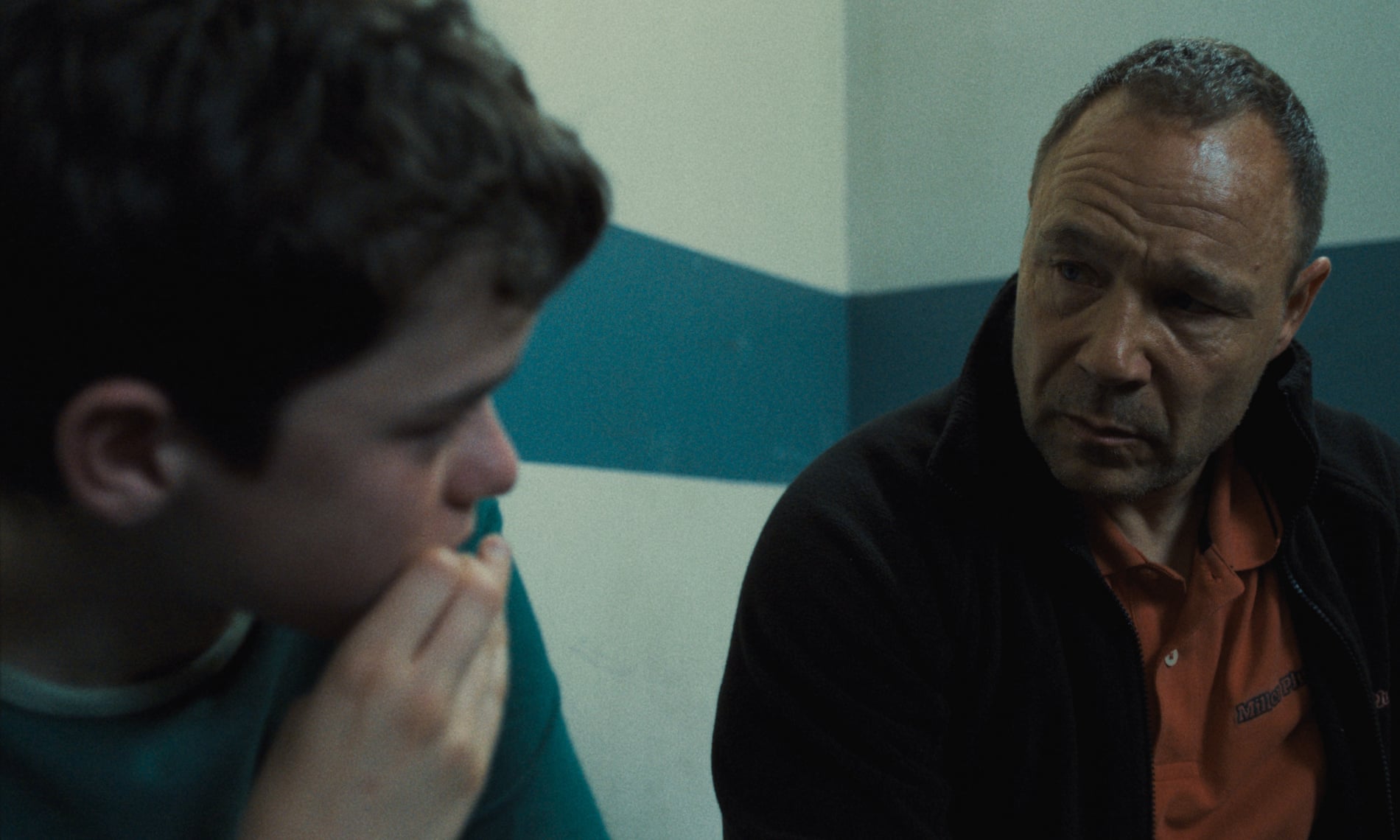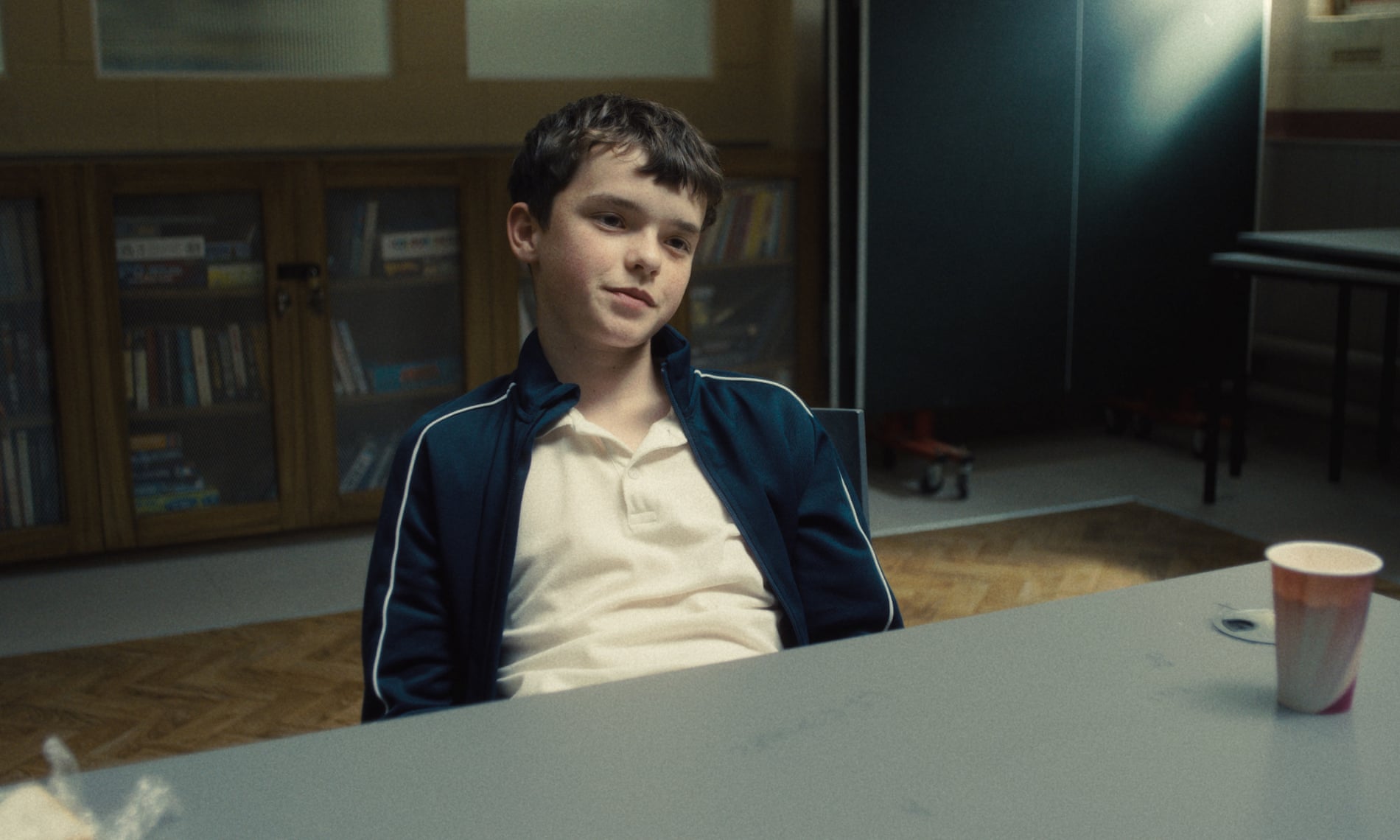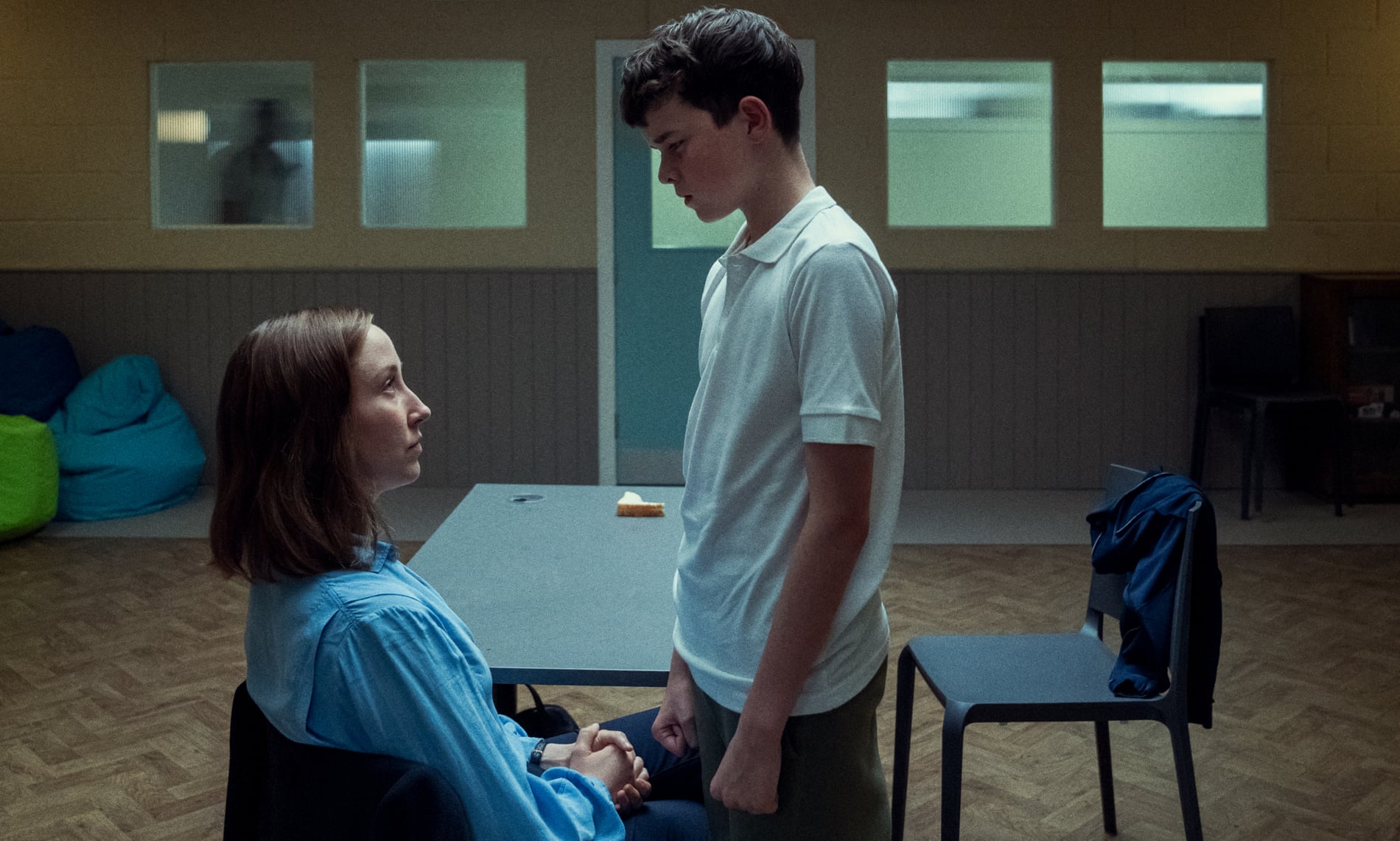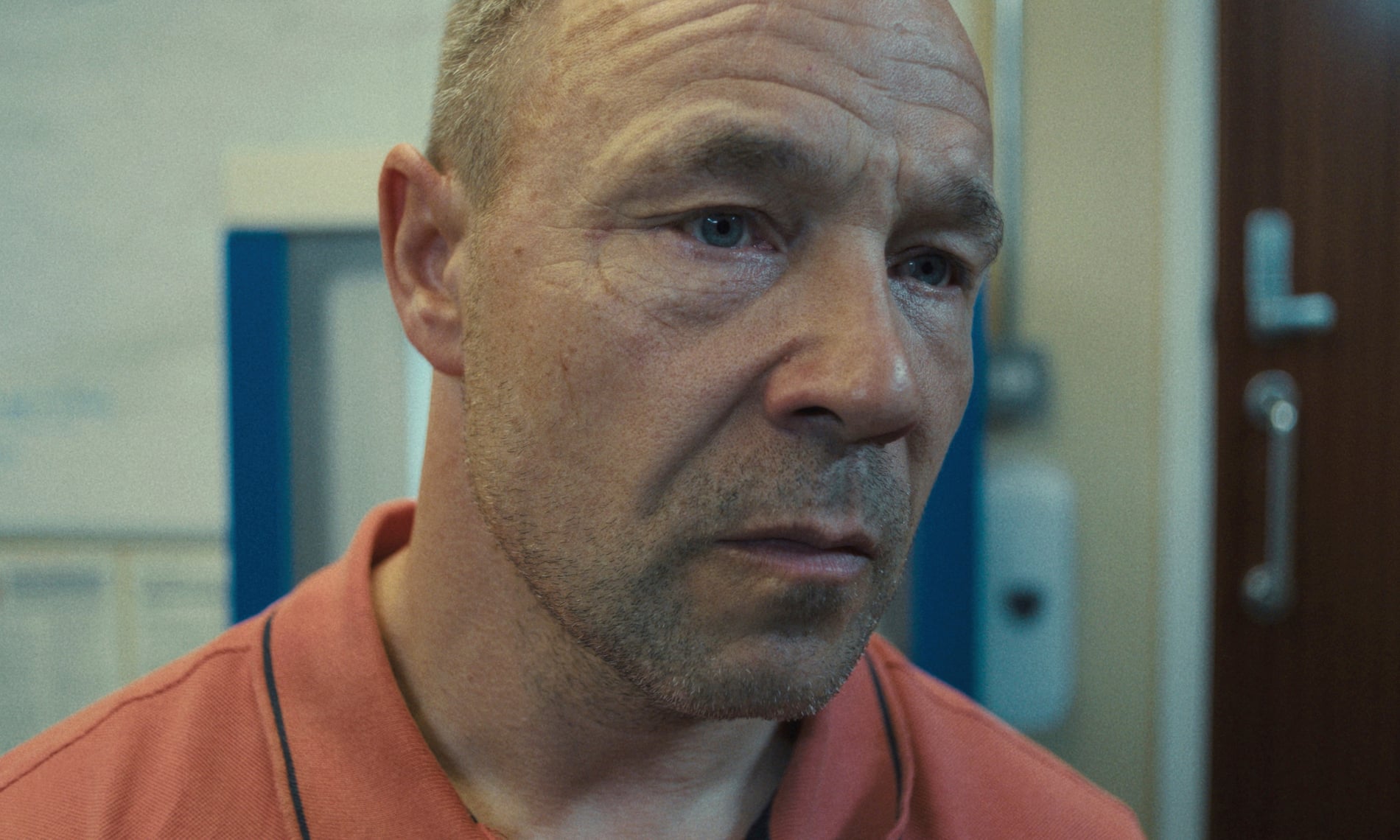I’m sorry son, I should have done better
I had been following Stephen Graham’s acting career for some time already and admired his talent greatly. I first saw him in one of my favourite films - This is England, and then also in the 3 seasons of the series under the same title. Graham played a skinhead who had become a neonazi while in jail and ended up assaulting and almost killing a fellow skinhead of Jamaican origin. Apparently the assault scene took a serious toll on him emotionally as he himself had suffered from bullying as a child due to his own Jamaican roots through his grandfather. Some years later I saw Graham in a superb British drama miniseries called The Virtues and again I was very impressed with his acting. Finally, I heard and read about Adolescence, the new Netflix hit co-written and co-produced by Graham.
The series, wonderfully directed by Barantini, does a really good job at examining a serious problem with British society, which is probably relevant to most contemporary societies, especially in Europe. Adolescence portrays quite a grim picture of a deficient education system in a failing society, which is perhaps not entirely untrue about countries which I've lived in such as Spain and Poland. The teachers in Jamie’s school seem to have no authority whatsoever and the students are out of control. Mr Malik says he doesn’t know the kids in school as they are “fucking impossible”. We see a teacher scolding two boys for using their phones in the classroom. Bullying and displays of violence, including fights between students and hostility towards teachers are rampant. The bond between teachers and pupils is broken, while schools have become mere factories of dysfunctional citizens produced for the benefit of the capitalist job market.
In addition, the series shows us how a broken idea of masculinity creates extremely toxic relationships between young people. It is not even an outdated idea but a completely new one - full of frustration for being rejected on multiple fronts, including social media, which is a powerful tool for interaction among the youth. The main logic behind this toxic model of masculinity is that boys need to toughen up and conceal their emotions. They are expected to endure any pressure and rejections thrown at them and remain unflinching. During Detective Inspector Bascombe’s conversation with his son Adam we learn that he never calls Adam “son”. The relationship between them is clearly distant and Adam doesn’t seem to feel supported by his father. In another scene DI Bascombe interrogates Jamie’s friend Ryan and asks him: “This is gonna seem like a silly question to you but did Jamie ever talk about his feelings?”, which reveals the common understanding in many masculine circles that talking about feelings is a silly idea. Boys are also taught the harsh lesson of “toughening up” through punishments, which Jamie has interiorised very well, as he thinks he deserves a punishment for misbehaving with his psychologist.
Another idea implicit within this prevalent model of masculinity is the idea that women and anything related to traits considered feminine are inferior and deserve to be dominated and kept in check. This is certainly what Jamie tries to do to the psychologist when he tries to scare her - to establish his superiority by affecting her confidence and her sense of safety. He uses offensive and sexist language with her and refuses to take her seriously initially. One of the consequences of an upbringing with patriarchal ideas of masculine dominance is that boys and girls do not mix and remain separated by an invisible barrier. For instance, we learn from Jamie that his dad doesn’t have any female friends, and Jamie seems to think that it’s out of respect for his mother. The core beliefs about respect and friendship are quite questionable as they assume the inferiority of women, who seem to be unworthy of friendship as they are viewed mainly as objects of sexual interest.
The producers of Adolescence provide plenty of examples of how our societies fail to recognise women. In one of the scenes the teacher in charge of showing the police officers around Jamie’s school presents DI Bascombe to the children but forgets to present DS Frank, a female officer working with Bascombe. Frank reacts with resignation, probably being used to such situations. During Ryan’s interrogation, only Bascombe speaks to the boy, trying to impress him with his childhood stories, while Frank remains quiet in the background. Also, the psychologist in charge of Jamie’s evaluation is mocked by the officer in charge of the centre for minors where Jamie is detained. The man behaves frivolously and inappropriately with her the whole time she is visiting the centre and even mansplains to her about body language, which is a topic she is well aware of. Jamie himself displays a light-hearted attitude towards the therapist at the beginning.
Briony, the earlier mentioned psychologist, tries to comprehend Jamie’s understanding of masculinity and in order to do so, she wants to know about his masculine lineage. In the last episode of the miniseries we learn more about Jamie’s dad, Eddie, and his family, who are deeply affected by the boy’s detention and trial. We see them a year after the tragic event which changed their lives forever. Eddie is the dominant father and his wife Mand and daughter Lisa do everything they can to ease his pain, while ignoring their own suffering. Both women prioritise Eddie’s emotional wellbeing to avoid making him upset.
We also discover Eddie’s bad temper and outbursts of violence. Eddie prides himself in never having hit his children, despite having suffered repeated beatings by his own father. Nonetheless, he is still an example of an alpha male masculinity endorsed by the society, with his dominance over women and inability to show affection and support to his son. We learn from Eddie that he used to take Jamie to play football with other boys but ended up feeling ashamed of his own son’s apparent lack of skills and couldn’t show him support. Eddie and Mand reminisce how Jamie used to like drawing but finally lost interest in it, possibly because it wasn’t seen as appropriate for a boy.
Adolescence puts significant emphasis on the negative impact of social media on young people. Children from Jamie’s school shame each other on Instagram, often by spreading sexually explicit images of other pupils (especially girls) that are supposed to be private. Jamie himself is a victim of cyberbullying. It is through social media and on the internet that dangerous ideologies such as incel spread. Misogynist ideas disseminated by hateful influencers such as Andrew Tate, whose name is mentioned in the series, reach young people like Jamie, potentially leading to tragedies like the one that triggers the plot of Adolescence. In the last episode we see Eddie being pestered by a young man who recognises him as Jamie’s trial has attracted substantial attention and caused outrage also among men who are hostile to ideas of feminism and gender equality. The young man offers Eddie support, as he seems to consider Jamie a victim, unfairly sacrificed at the altar of a society which supposedly oppresses men.
While social media, internet and other new channels of communication must have made the lives of young people more complex and possibly more difficult to cope with, it is undeniable that problems such as violence against women and girls, bullying, isolation, and discrimination had also affected previous generations which had no access to smartphones, Instagram or Tik Tok. In the past the media used to criticise certain musicians such as Elvis Presley, or violent content in films and computer games for having a negative impact on young people, however it seems quite evident that the root cause of violence, depression and isolation lies elsewhere.
Fortunately, the producers of Adolescence don’t overlook the complexity of the issue and point in other directions too. One of the main points they make is about the failure of the neoliberal capitalist society to provide wellbeing and stability, especially to the underprivileged. Economic disparities between social classes and the underlying ideas of success and failure contribute to the hostile climate of rivalry and hierarchy among the children. Poverty is one of the reasons why some of the kids are targeted by others and face ostracism. For example, we discover that one of Jamie’s only two friends is bullied because his mother does shopping in the cheapest supermarkets. There are overworked parents who hardly ever have enough time to devote to their children and show them care and affection. Parents such as Eddie and Mand or DI Bascombe are too busy to realise that their children are struggling and require emotional support.
The series offers some consolation to the viewers as Bascombe, Eddie and Mand finally realise their mistakes. Bascombe can still repair the relationship with his son, while Eddie and Mand debate whether they could have prevented the tragedy that led to Jamie’s detention. Eddie initially disagrees with Mand, who says they could have done more, but eventually acknowledges his failure. “I’m sorry son, I should have done better” are the final words of a heartbreaking ending.
The question I asked myself after watching Adolescence is: Who and what failed? Surely it’s not only Jamie’s parents who are at fault. The answer is probably that the society as a whole has neglected issues which lead to extreme isolation, stress and violence among young people. Neoliberal policies of the British government have broken the education and healthcare systems, which affects the working class significantly. The series is also a stark reminder of the dangers of abandoning young boys to their fate in a context of an important cultural shift towards positions of gender equality. Even though Jamie is the perpetrator of a horrible crime, he is also shown as a child left without the support and empathy which he badly needed. This support should have come from his parents, teachers and the community, but all those elements failed to notice the growing isolation, frustration and anger which finally overwhelmed him.
Adolescence deserves the praise it has received from viewers and critics. The filming technique, the acting, the plot - everything in the series is top notch. Most importantly however, we need such stories to spread awareness in our societies. The message from Stephen Graham and Jack Thorne is clear: Children need more attention and support, and so do parents and teachers. As a society we cannot allow education and healthcare to fail. Neoliberal policies and ideas need to be countered by measures that foster acceptance, equality and emotional responsibility. Definitely such supportive measures should come from top to bottom, as our governments should do better, but there are effective ways of building communal support if the authorities fail to address the issues that affect us. Change is possible and productions like Adolescence are a necessary call to action for all of us.
[All images are taken from theguardian.com]













Comentarios
Publicar un comentario